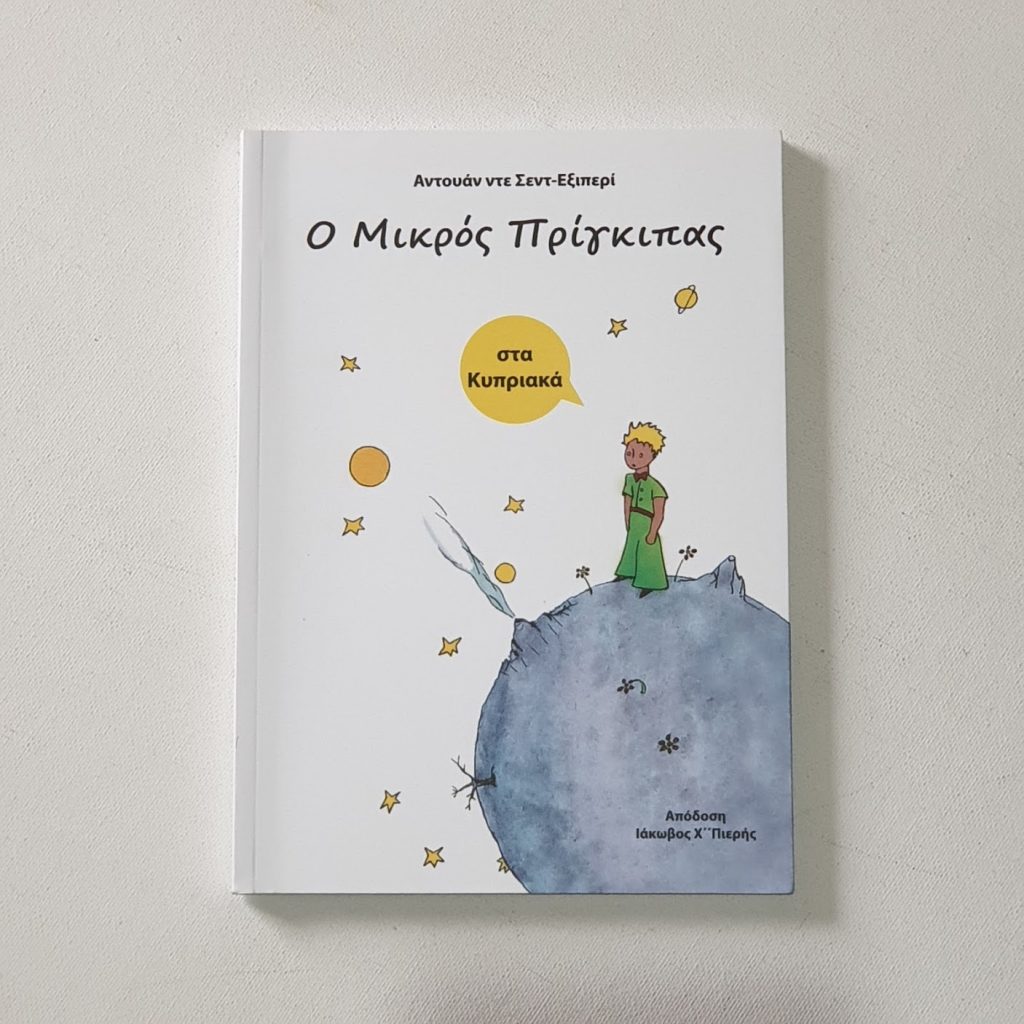
Ο Μικρός Πρίγκιπας (O Mikrós Prínkipas) — in Cypriot Greek.
Cypriot Greek, or Kypriaká (Κυπριακά), is a richly expressive and historically layered variety of Greek spoken on the island of Cyprus, distinguished by its melodic intonation, archaic structures, and a vivid lexicon that reflects millennia of cultural convergence. While rooted in the same linguistic ancestry as Standard Modern Greek, Cypriot Greek preserves numerous elements from Ancient and Medieval Greek, as well as unique features influenced by centuries of contact with Arabic, Turkish, Italian, French, and especially Venetian—all testaments to the island’s strategic position at the crossroads of empires. Though mutually intelligible with Standard Greek, Cypriot Greek stands apart in pronunciation, grammar, and vocabulary, giving it a fiercely local identity. For instance, the use of older verb forms, the pronunciation of “k” where Standard Greek has “ch”, and a trove of idiomatic expressions make it a linguistic time capsule laced with Mediterranean vitality.
Culturally, Cypriot Greek is the heartbeat of a society that treasures oral tradition, hospitality, and spirited communal life. It thrives not only in casual conversation but also in folk poetry, traditional theatre, and song—especially in tsamiko-inspired local music and the satirical poetic duels of tsiattista, where witty couplets are exchanged on the spot in front of an audience. The dialect is inseparable from the Cypriot sense of self: earthy, warm, subtly defiant, and grounded in the rhythms of olive groves, village squares, and coastal towns. Even as Greek Cypriots are educated in Standard Modern Greek, many consider Kypriaká their true cultural voice—intimate, humorous, and emotionally resonant. In recent years, there has been a cultural reawakening, with Cypriot Greek finding new life in film, pop music, and social media, affirming its place not merely as a regional dialect but as a vital expression of a people shaped by myth, migration, resilience, and the sunlit irony of island life.


